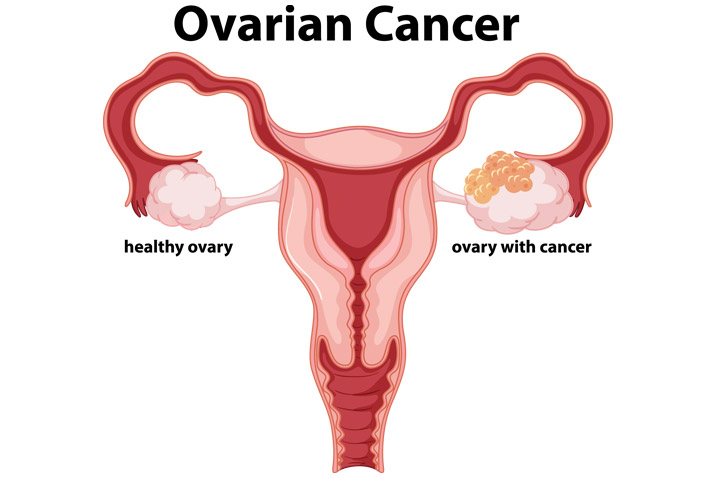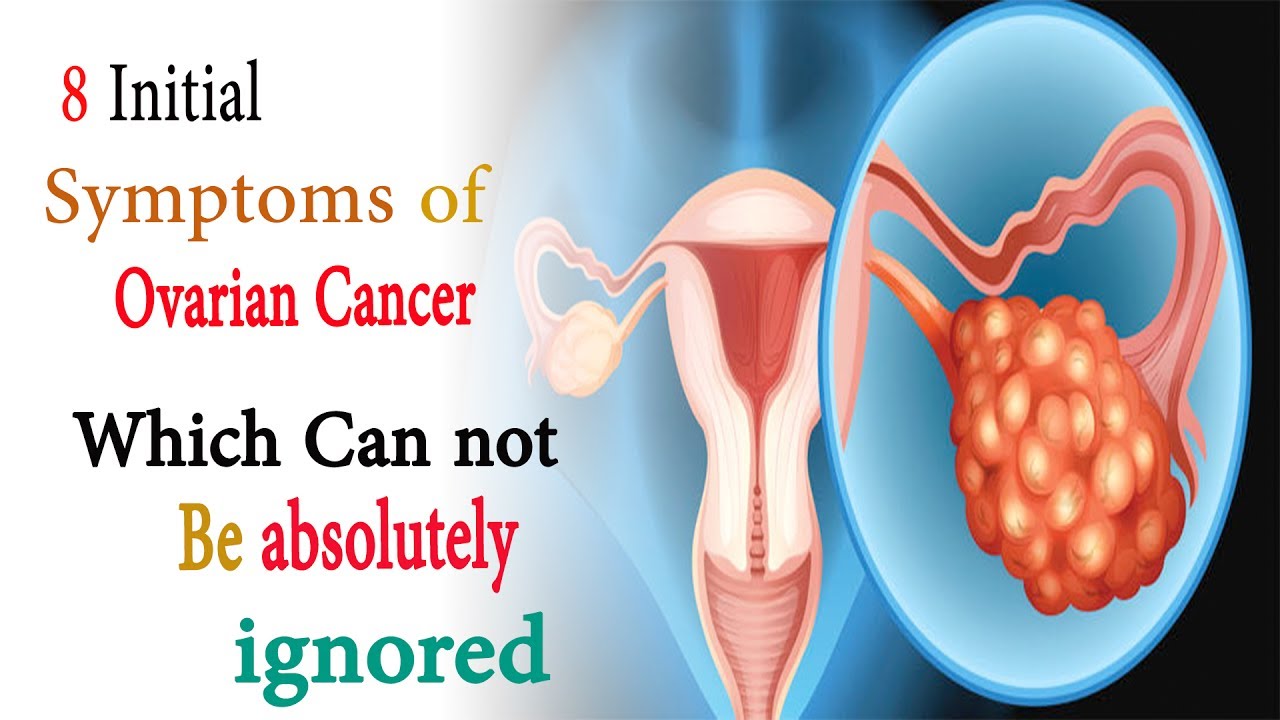What Are Ovarian Cancer Symptoms? – Causes, Diagnosis, Treatment Options & Preventions
Ovarian Cancer Symptoms – Did you know that humans can get 200 different types of cancers? Usually, help experts around the world categorize these cancels depending on the Oregon they started. Some of these cancers are gender specific.
For example, men can get prostate cancer, and women can get ovarian cancer. Both cancers are exclusive to their respective genders. Ovarian cancer is a disease where the body will start growing cells abnormally and form tumors in the ovaries.
The American Cancer Society has recently published a report mentioning that in the first six months of 2022, the United States has already recorded more than 20,000 cases of ovarian cancer, and around 13,000 women have already died.
It is a serious issue in women, and that is why today we are going to discuss everything regarding ovarian cancer symptoms. We will also take a look at its diagnosis, treatment, and preventive measures.
Table of Contents
Symptoms of ovarian cancer
As you are already aware, ovarian cancer is limited to women only as it grows in the ovaries. That is why most of the symptoms associated with cancer are also going to be exclusive to women.
Most cancers in the world do not cause any signs or symptoms until they have already developed two second or higher stages. A similar story is with ovarian cancer. There is a higher probability that you might not even develop any symptoms until cancer has already reached the second or third stage.
Still, health experts around the world, including the Centers for Disease Control and Prevention, suggest every woman should learn about all the symptoms of ovarian cancer. There is a high probability that these symptoms can lead you to an early diagnosis.
A person who has been affected with ovarian cancer might develop the below-given symptoms.
- Change in the menstrual cycle.
- Abnormal bloating and swelling
- Quickly feeling full while eating
- Unexpected fatigue
- Severe back pain
- Discomfort in the pelvic area
- Unexpected weight loss
- Changes in bowel movements
- Frequent need for urination
As you can see in the above-given list of symptoms associated with ovarian cancer, most of these symptoms are also associated with other diseases.
Under any circumstances, you should not self-diagnose yourself as affected by ovarian cancer. Many of these symptoms are also associated with other diseases, and you will be jeopardizing your mental health with self-diagnosis.

Causes of ovarian cancer
Before we move ahead and start talking about the diagnosis process of ovarian cancer, let’s first discuss all the possible causes.
Health experts around the world are not sure about the right causes of obedient cancer. Similar to other types of cancer, ovarian cancer develops when your body starts creating new cells without destroying older ones. New cells can later transform themselves into a tumor, and it will be called cancer.
With the data studies, health experts around the world and health agencies have come up with some categories of people where the risk of developing ovarian cancer is more than any other category.
- Women above the age of 50 should get themselves diagnosed with ovarian cancer if they are experiencing any of the above-given symptoms. Most positive cases of ovarian cancer are in women above the age of 50.
- Apart from age, genetics also play a huge role in every type of cancer, including ovarian cancer. If you already have a family member who has ever been diagnosed with a similar type of cancer, then you should consult with your health care provider as early as possible.
- Health experts around the world believe that people who are overweight or obese have more chances of developing several types of cancers, including ovarian cancer.
- Some studies have indicated that women who have never become pregnant in their life might be at greater risk of developing ovarian cancer.
- Lastly, late menopause or early menstruation can also become one of the biggest causes of ovarian cancer. If you are at menopause age, then you should consult every possibility with your health care provider as early as possible.
Diagnosis of ovarian cancer
Before we wrap up this session by talking about the treatment options for ovarian cancer, let’s first discuss the diagnosis process.
As you are already aware, most cancers do not cause any symptoms until it has already reached the second or third stage. Early diagnosis of any cancer can provide you with a huge edge when it comes to treatment and overall recovery from the disease.
Pelvic exam
A pelvic exam is among the most popular choices to diagnose ovarian cancer. During the procedure, your doctor is going to insert gloved and lubricated fingers into your vagina and try to pressure your abdomen. The procedure will help your doctor find any lumps or getting regularity in your internal organs.
Imaging tests
Apart from pelvic exams, your healthcare provider might also suggest you go for some imaging tests. Your doctor might suggest you go for an ultrasound or CT scan to take an image of your abdomen and pelvic area. It can also help your doctor understand any abnormality.
Blood test
There is also a probability that your doctor might suggest you go for a blood test along with imaging and a pelvic test. You usually suggest doctors go for blood tests to find any tumor markers. For example, the cancer antigen 125 test is known to detect a protein that is usually associated with the surface of ovarian cancer cells.
Blood tests are not the perfect test to diagnose ovarian cancer or any other type of cancer in the world. Blood tests usually provide clues about cancer, and with the help of other diagnoses, your doctor can truly determine.
Treatment of ovarian cancer
Before we completely wrap up this session, let’s take a quick look at the treatment options available for ovarian cancer.
Health experts around the world believe that ovarian cancer usually requires a combination of treatment, including surgery and chemotherapy.
The health of the patient and their history with a similar disease are going to determine the type of surgery and the intensity of treatment.
Surgery
There are different types of surgeries available for ovarian cancer, and it depends on the type of cancer you have got and its stage. For example, your doctor can suggest you go for surgery to remove one ovary if the cancer is at an early stage and hasn’t spread to other organs.
Similarly, your doctor can suggest you remove both of your ovaries if the cancer has already started spreading to other body parts. There is also a probability that your doctor might have both of your ovaries along with the uterus.
Chemotherapy
As we have previously discussed, your doctor is going to use a combination of surgery and chemotherapy to treat ovarian cancer. Chemotherapy for ovarian cancer is not going to be much different compared to any other type of cancer.
Your doctor is going chemicals to kill fast-growing cells in the body, and they will be injected into a vein. There is a higher probability that cancer cells can’t stay in the body even after surgery, and that is why your doctor is going to use chemotherapy to kill those cancer cells.
Targeted therapy
Along with the other options, your doctor might also suggest you go for targeted drug treatments that only focus on Specific weaknesses present within cancer cells. It is the only treatment therapy that is known to kill cancer cells with medication. Your doctor might suggest you go for some other diagnosis process to find the right cancer cells.
Prevention of ovarian cancer
Health experts around the world, including the American Cancer Society, do not believe in many techniques that can help you control or prevent ovarian cancer.
Some studies have indicated that taking birth control pills might lower the chances of a woman getting away with cancer. Birth control pills also come with their side effects, and you should consult with your health care provider before you start consuming them regularly to prevent ovarian cancer.
Apart from that, if anyone in your family has ever been diagnosed with any type of women-specific cancer, then you should consult with your health care provider. There is also a higher probability that women with a family history of breast cancer are equally vulnerable to getting ovarian cancer.
Are there any early signs of ovarian cancer?
Health experts around the world believe that cancer of any kind, including ovarian cancer, do not cause any signs or symptoms until cancer has already developed to the second and third stage. Your health expert might suggest you go for your annual diagnosis of ovarian cancer if anyone in your family already has a history of similar cancers.

